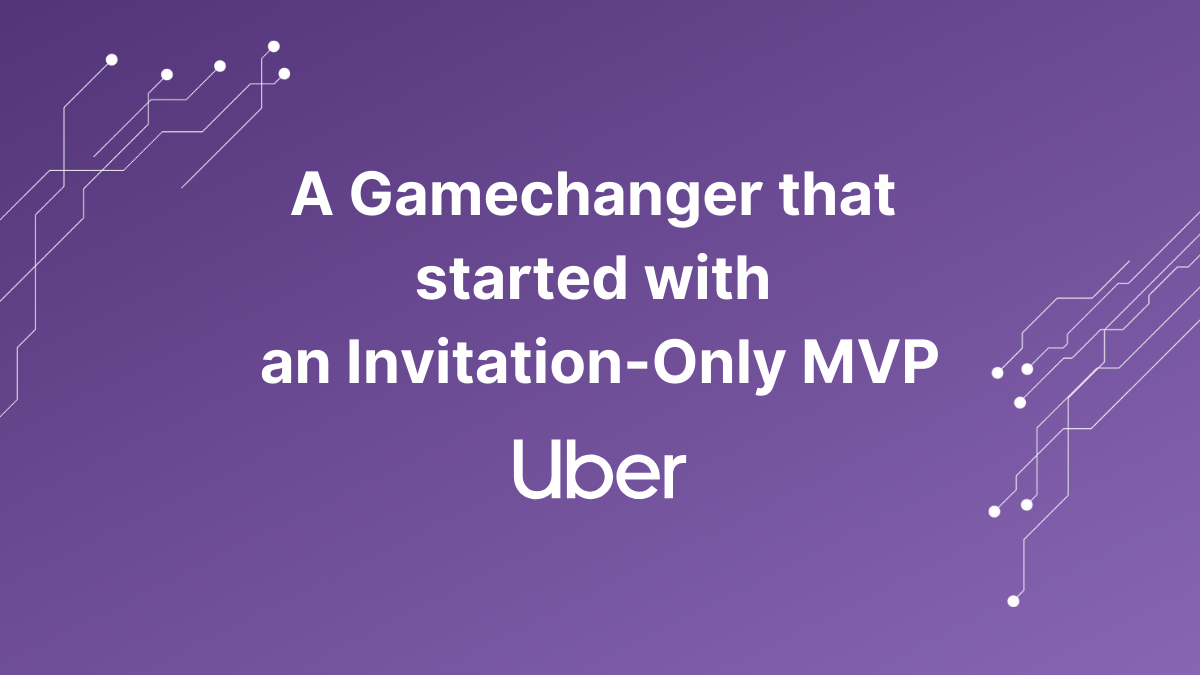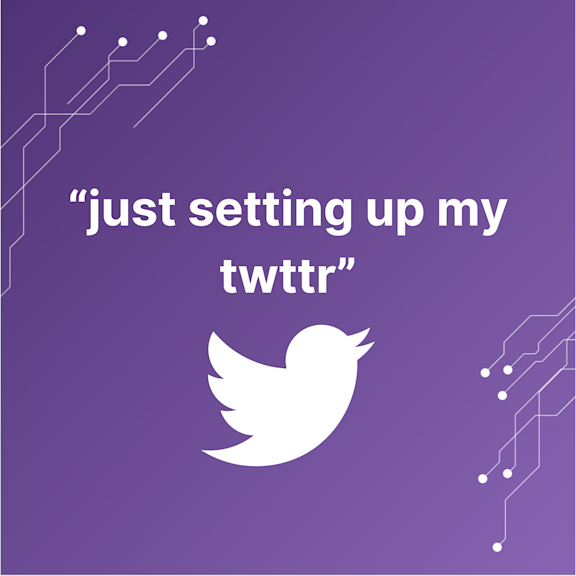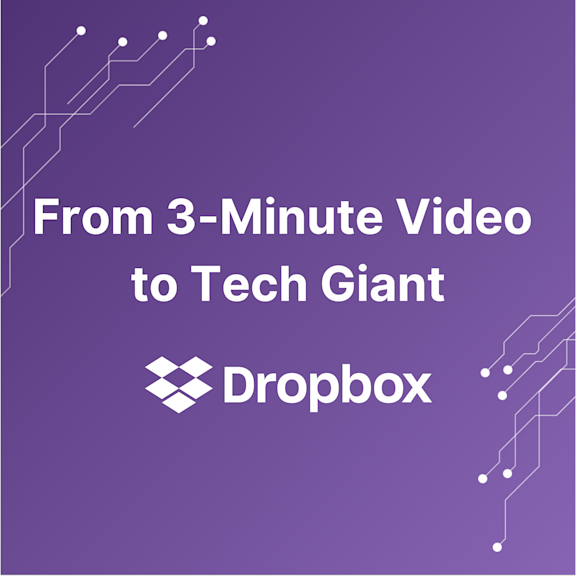Flashback to Uber's MVP

A Gamechanger that started with an Invitation-Only MVP
Check out the exceptional story of how Uber initiated with an invitation-only MVP to become the tech giant it is today!
Uber is a tech giant worth around $63 billion as of 2023, operating in 70+ countries, with different products. However, this was not always the case. Uber is one of the best examples of companies that adopted the classic MVP model and grow out of it. The initial application was used to validate the idea behind Uber and collect feedback, including only the must-have features with very simple graphics.
Early Stages
Uber started as an MVP back in 2009 under the name of “UberCab”. It was an iPhone application focused on a single problem - booking a ride. The founders Travis Kalanick and Garrett Camp saw the opportunity to solve the issue and took the simple concept to validate what they believed could solve the “problem”.
UberCab was an invitation-only service initially. The application was being used by the co-founders' friends, and those who wanted to join the app couldn't simply download the app from the App Store. Instead, they were required to email Kalanick, who would then provide unique application access codes. The users would text their pick-up addresses, and UberCab would find the nearest available driver to be sent to the customer's location. The orders were handled manually by the co-founders during the early stages. Kalanick would contact the drivers and offer them to accept rides. 3 out of 10 drivers agreed to do so, giving a start to the #1 taxi application in the world.
The first launch of the product only offered the core features that were must-haves to solve the issue of finding rides in the traditional way. The nice-to-have features were added in future versions after the solution's validation. Releasing the MVP within a small set of early adopters, Uber quickly entered the market, collected user feedback to iterate the application, sense the potential demand and users, and lay a strong foundation to be the massive company they are today.
Validating the Idea
The increasing number of the MVP's downloads signalled the validation of the solution, and after collecting enough target user data, Uber was ready to add new features and services to the application. The nice-to-have features, such as an in-app payment system, location tracking of drivers, cost estimation, fare splitting, and many more, were added to the application's later versions.
The Rise of Uber and Today
In 2011, the company changed its name from UberCab to Uber and continued expanding its services and products.
Uber went public in 2019 and reported an average of 91 million users monthly. Currently, Uber has a wide variety of services such as UberX, UberXL, UberTransit, UberLux, UberPool, UberComfort, UberGreen, UberBlack, UberBlackSUV, UberWAV, UberTaxi, UberFlash, UberAuto, UberAir, Scooter Options, Bike Options, UberPark, UberEats, UberConnect, UberFreight, Uber AI, and UberWorks, continuing to release new services for its customers.
Key Take-Aways for MVP Development from Uber's Story:
Don't hesitate to adopt the Minimum Viable Product (MVP) model. Uber's success story highlights the importance of starting small and focusing on the core problem that your product aims to solve. By launching an MVP, you can quickly test your idea with a small group of early adopters, get feedback and iterate based on their feedback.
Collect user feedback. Uber's early success can be attributed to the founders' willingness to listen to user feedback and make improvements based on it. Collecting and analysing user feedback can help you improve your product and better meet the needs of your customers.
Focus on the must-have features. When launching an MVP, focus on the must-have features that are necessary to solve the core problem. Once your product is validated, you can add the nice-to-have features based on user feedback.
Start with a small set of early adopters. Like Uber, start by launching your product with a small group of early adopters who are willing to test your product and provide feedback. This will help you validate your product and refine it before scaling up.
Keep adding new features and services. Uber's success can also be attributed to its ability to keep adding new features and services to its platform. By continuously innovating and expanding its offerings, Uber has been able to stay ahead of the competition and provide more value to its customers.
It's Your Turn Now!
Like other tech giants, Uber started with a simple MVP, validated the idea, collected feedback, and iterated. Inspired by Uber's story? Want to build your MVP? DoganTech's experts will help you with your MVP development process and set you off to a great start! Book a call with us to initiate your business with a great MVP.
Visit our blog and follow our social media accounts for more inspirational stories and tips.
As a Software Development Agency, DoganTech offers an exceptional all-in-one software development project package. This is one of our most popular packages, through which our clients benefit from our range of high-quality services in a single customised package.
Our offer is carefully designed for Startups ready to initiate, grow and transform their businesses.
If you are ready to take your Startup to the next level, read on and learn more about DoganTech’s Software Development Project Package!
Have a great idea for your new Startup, but need an extra hand to build a working product to validate it?
Let’s work on your product, run your project and develop your MVP (Minimum Viable Product) together. Get answers to all your questions about technology and product & project management from our team, who are experts in working with Startups and delivering the best value.
High quality, secure and rapidly-delivered software development services. Our services include but are not limited to: MVPs, software products and front-end & back-end software development.
Related Posts

5 Common Misconceptions About MVP Development for Non-Technical Cofounders

Flashback to Twitter’s MVP

From 3-Minute Video to Tech Giant - Dropbox MVP Flashback
